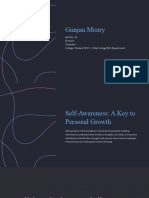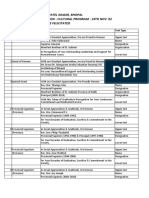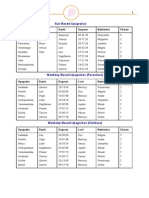0% found this document useful (0 votes)
35 views5 pagesAssignment Activity Emitional Intelligence Unit 2
The document discusses the significance of self-awareness in emotional intelligence (EI) and personal growth, emphasizing its role in effective communication, conflict resolution, and leadership. It outlines techniques for enhancing self-awareness, such as mindfulness, journaling, and self-reflection, which help individuals recognize their emotions and identify personal strengths and weaknesses. Ultimately, developing self-awareness is portrayed as a transformative process that enriches personal and professional interactions.
Uploaded by
seraphmuindeCopyright
© © All Rights Reserved
We take content rights seriously. If you suspect this is your content, claim it here.
Available Formats
Download as DOCX, PDF, TXT or read online on Scribd
0% found this document useful (0 votes)
35 views5 pagesAssignment Activity Emitional Intelligence Unit 2
The document discusses the significance of self-awareness in emotional intelligence (EI) and personal growth, emphasizing its role in effective communication, conflict resolution, and leadership. It outlines techniques for enhancing self-awareness, such as mindfulness, journaling, and self-reflection, which help individuals recognize their emotions and identify personal strengths and weaknesses. Ultimately, developing self-awareness is portrayed as a transformative process that enriches personal and professional interactions.
Uploaded by
seraphmuindeCopyright
© © All Rights Reserved
We take content rights seriously. If you suspect this is your content, claim it here.
Available Formats
Download as DOCX, PDF, TXT or read online on Scribd
/ 5






















































































































